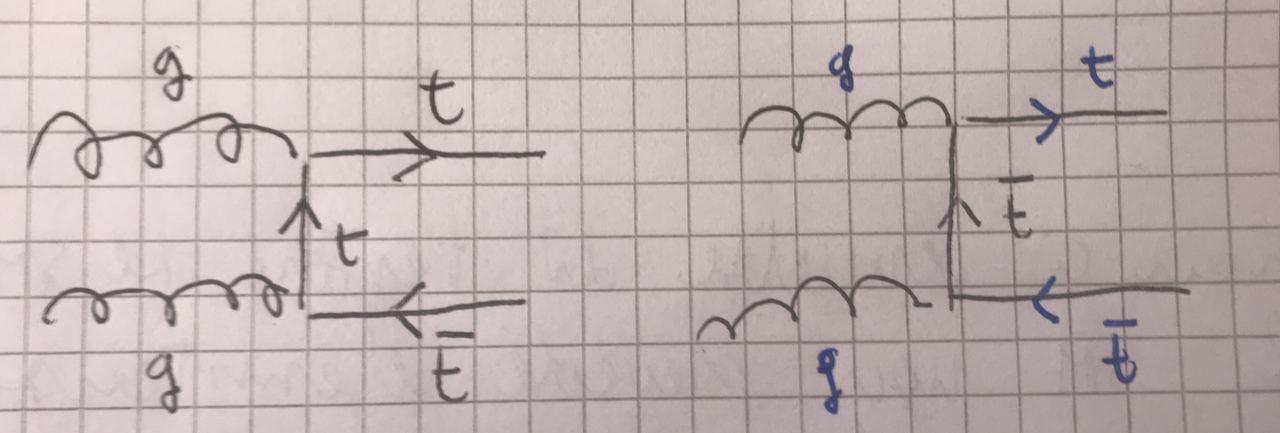I have a few simple questions about Feynman Diagrams:
- Why, when $W^+$ or $W^-$ bosons are involved, sometimes the sign + or - is shown and sometimes not (example1, example2)?
- Why the arrow is usually not shown on bosonic lines?
- Sometimes I have the impression that for a single process, different equivalent Feynman diagrams exist. I give an example below. How can I decide in this case if the two diagrams have to be take into account or not? Is there a general rule?

